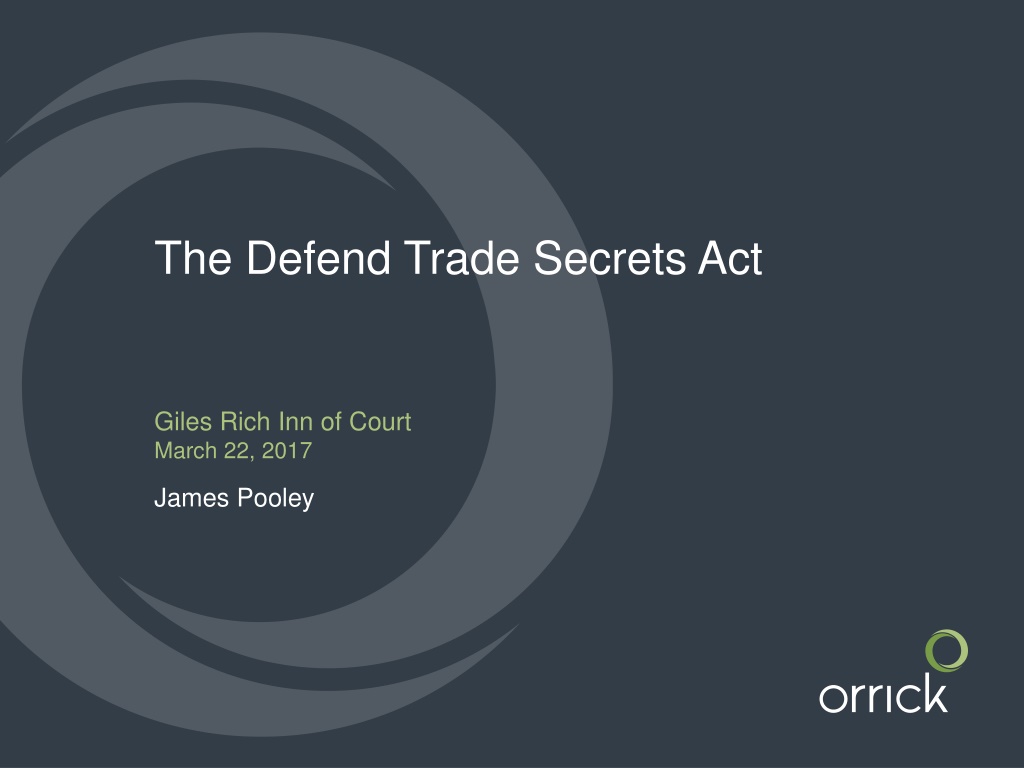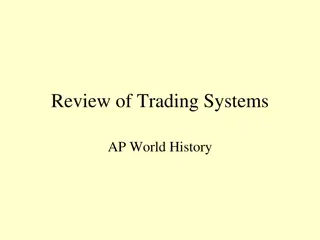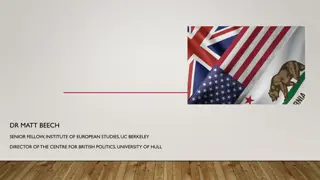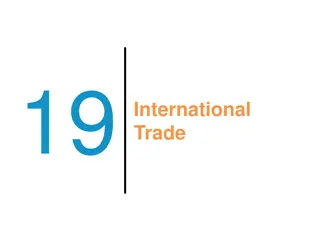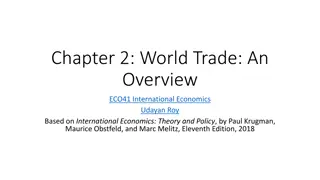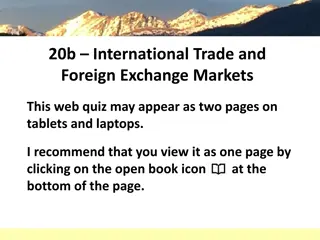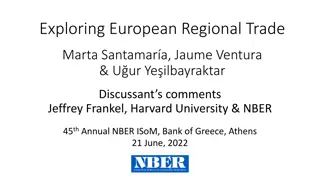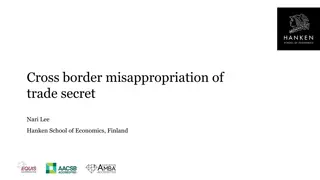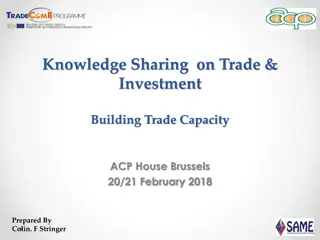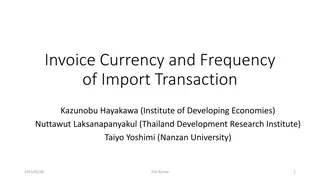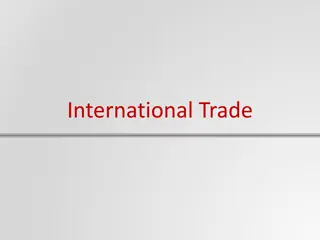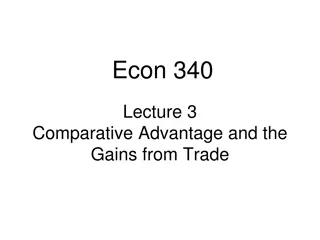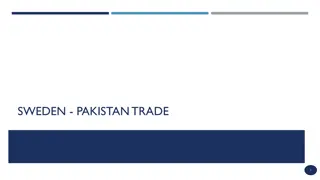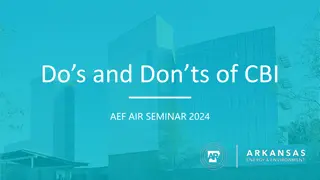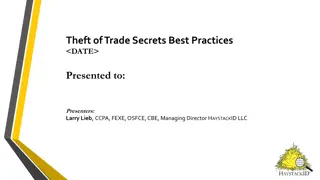Understanding the Defend Trade Secrets Act (DTSA) - Key Points and Implications
The Defend Trade Secrets Act (DTSA) is a federal law that provides important protections for trade secrets. This law covers various aspects such as the definition of a trade secret, reasonable efforts requirement, types of misappropriation, injunctions, damages, and more. The DTSA also includes provisions for whistleblower immunity, extraterritoriality, and addressing employee misuse of trade secrets. Through detailed analysis of cases and legal implications, this article delves into the significance and nuances of the DTSA in safeguarding intellectual property rights.
Download Presentation

Please find below an Image/Link to download the presentation.
The content on the website is provided AS IS for your information and personal use only. It may not be sold, licensed, or shared on other websites without obtaining consent from the author. Download presentation by click this link. If you encounter any issues during the download, it is possible that the publisher has removed the file from their server.
E N D
Presentation Transcript
The Defend Trade Secrets Act Giles Rich Inn of Court March 22, 2017 James Pooley
Most of the DTSA is familiar Definition of a trade secret Reasonable efforts requirement Types of misappropriation Injunctions (except departing employees) Damages Enhanced damages and fees Three year limitations period It s a choice: no preemption (except whistleblowers) Orrick | March 2017 2
The most important differences Federal jurisdiction for interstate cases Nationwide service of process, common rules Seizure provisions Similar to Lanham Act but tougher: no plaintiff access, possession and participation in theft required, 7 day hearing limit, bond + unlimited liability Limited to extraordinary cases; very limited impact so far; Rule 65 available Whistleblower immunity Allows confidential disclosure to attorney, law enforcement or court Requires notice in new individual NDAs Injunctions and employee mobility Threatened misappropriation may be enjoined, but must be based on behavior Extraterritoriality Strong, if oblique, statements of congressional intent Orrick | March 2017 3
Whistleblower immunity: the first case Unum Group v. Loftus, 2016 WL 7115967 (D. Mass. Dec. 6) Employee removed confidential files, attorney claimed review for wrongdoing Employer sought injunction, Loftus filed MTD Court refused dismissal because predicate facts of immunity not established Decision has been criticized by professor who inspired statute Peter Menell, Misconstruing Whistleblower Immunity Under the DTSA, http://clsbluesky.law.columbia.edu/2017/01/03/misconstruing-whistleblower- immunity-under-the-defend-trade-secrets-act/ How to resolve question at earliest possible time Similar to personal jurisdiction, with limited discovery? How to prepare for and discourage employee misuse Careful documentation, vigorous enforcement Orrick | March 2017 4
The death of inevitable disclosure? Based on dictum from Pepsico v Redmond, 54 F.3d 1262 (7th Cir. 1995) In fact injunctions without evidence of bad behavior are rare Touchstone is UTSA 2: threatened misappropriation Widely accepted that threats can be circumstantial California concern that federal court could impose inevitability B&P Code 16600: strong public policy favoring employee mobility Whyte v. Schlage, 101 CA4th 1443 (2002): no alternative claim DTSA: respect state policy, prohibit bans, require real evidence conditions . . . shall be based on evidence of threatened misappropriation and not merely on the information the person knows Facts of Pepsico could result in threatened misappropriation injunction in CA Orrick | March 2017 5
Extraterritorial scope not clear yet Statutes do not apply outside the U.S. unless Congress intends it DTSA added (uncodified) 5 Sense of Congress that Trade secret theft occurs in the U.S. and around the world, and, wherever it occurs, harms the companies that own the trade secrets and the employees of the companies DTSA added (uncodified) 4 requiring regular reports on The scope and breadth of the theft of trade secrets of U.S. companies occurring outside of the U.S., and the threat posed, together with recommendations to reduce the threat of and economic impact caused by such foreign theft EEA expressly provided (18 USC 1837) for limited extraterritoriality If an act in furtherance of the offense was committed in the U.S., or If the offender was a U.S. citizen or permanent resident Is there personal jurisdiction on the facts in TianRui, 661 F.3d 1322? Orrick | March 2017 6
Thank you. James Pooley jpooley@orrick.com +1 650 285 8520 July 2016 7
